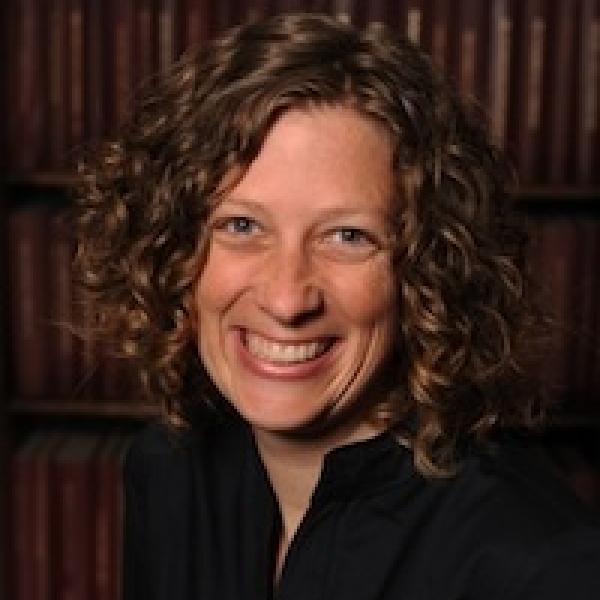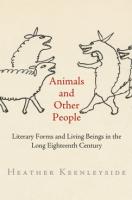
Biography
My teaching and research interests center on eighteenth-century literature (including the novel, poetry, philosophy, natural history, and children’s literature), as well as on animal studies, intellectual history, and the history of criticism.
My first book, Animals and Other People: Literary Forms and Living Beings in the Long Eighteenth Century (University of Pennsylvania Press, 2016), argues for the central role of literary modes of knowledge in apprehending animal life. One of my central aims, in that book, is to reconsider the importance of a figure like personification, or the logic of a genre like the beast fable. Another is to consider how eighteenth-century texts might contribute to current discussions about animal life and multispecies entanglements. The book was shortlisted for the 2017 Kensur Prize for the best book in eighteenth-century studies.
I am currently at work on a second project, The Literary History of Ideas: Thoughts as Things in Eighteenth-Century Literature. In this new work, I’m especially interested in two things. The first is the relationship between the history of ideas—an approach to intellectual history that was particularly important in the mid-twentieth century—and the history of our discipline of literary criticism. The second is a way of thinking about ideas and their movements in the world that can be traced from the history of ideas back to aspects of eighteenth-century literature: to debates about the existence of abstract ideas; the poetry of personified abstractions; practices of paraphrase and disputes about style and diction; narrative genres that develop alongside (and somewhat differently than) the novel.
In my own work, I am continually fascinated by the deep familiarity, and also the strangeness, of the eighteenth century—the ways in which its concerns and questions both are and are not our own. In my teaching, I hope to share this fascination with students, as well as to cultivate and to learn from their own interests in the way that our contemporary world is shaped and also challenged by the writing and thinking of the past. I was the recipient of a 2015 Mark Ashin Fellowship for Excellence in College Teaching, and a 2016 Faculty Award for Excellence in Graduate Teaching and Mentoring.
Selected Publications
- Animals and Other People: Literary Forms and Living Beings in the Long Eighteenth Century. Philadelphia: University of Pennsylvania Press, 2016.
- ed., Animals, vol. 2 of British It-Narratives, 1750-1830. London: Pickering and Chatto, 2012.
- “Matter, Form, Idea: What Lovejoy’s History of Ideas Might Have To Do With Literature.” ELH 84.1 (2017).
- “The Rise of the Novel and the Fall of Personification.” Eighteenth-Century Poetry and the Rise of the Novel Reconsidered, ed. Kate Parker and Courtney Weiss-Smith. Lewisburg, PA: Bucknell University Press, 2014.
- “The First-Person Form of Life: Locke, Sterne, and the Autobiographical Animal.” Critical Inquiry 39.1 (2012).
- “Personification for the People: On James Thomson’s The Seasons,” ELH 76.2 (2009).
Teaching
2020-2021 Courses: Winter 2021: The Gothic Novel (graduate); Spring 2021: Girlhood (undergraduate)
Graduate: Greenhouse Romanticism; The Lives of Animals; Frankenstein; Enlightenment Education and the Invention of Children's Literature; Empiricism, Ideas, and the Realist Novel
Undergraduate: British Women Writers, 1660-1800; The Lives of Animals; The Rise of the Novel; Shelley, Wollstonecraft, Godwin; The Animal: Theories of Nonhuman Life; Media Aesthetics

